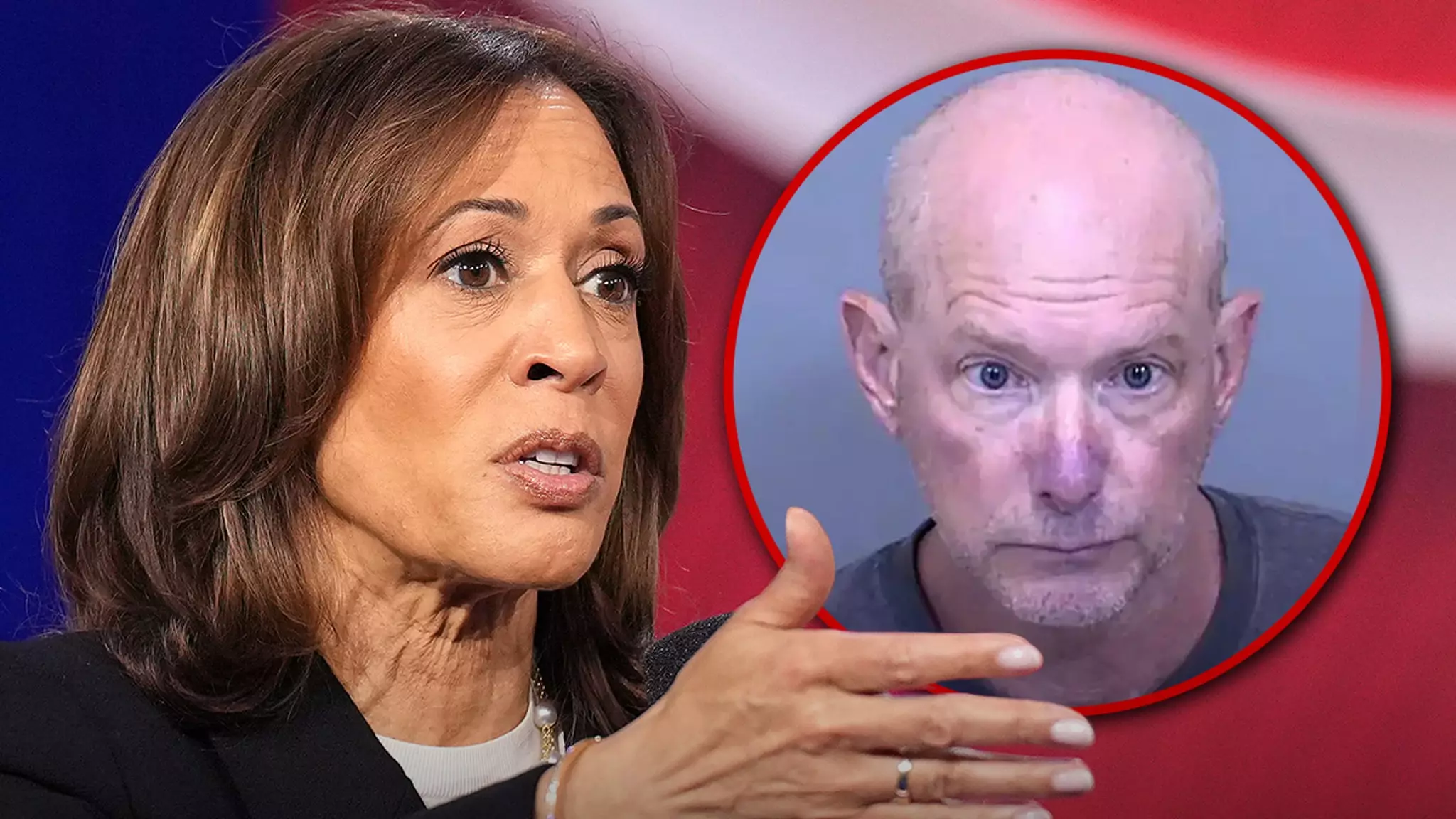The recent arrest of Jeffrey Michael Kelly, linked to a frightening series of events surrounding Kamala Harris’ campaign office in Arizona, raises significant concerns about the intersection of political discourse and violent extremism. Prosecutor Neha Bhatia’s claims during a court session reveal chilling details: authorities discovered an alarming stockpile of over 120 firearms and 250,000 rounds of ammunition in Kelly’s residence. This shocking cache, coupled with specialized equipment like body armor and silencers, suggests a level of planning that suggests an imminent threat. The situation escalates further when considering that Kelly allegedly attempted to inflict harm on the campaign office by firing BB pellets and actual gunshots at the structure across several days.
The psychological profile suggested by Kelly’s actions is a cause for concern. The nature of his crimes indicates not just acts of vandalism but a disturbing intent to instill terror. The prosecutor mentioned nefarious items such as bags of white powder attached to razor blades around political signs in Ahwatukee, signaling a premeditated effort to intimidate or provoke fear in the community. Such tactics are reminiscent of extremist behavior aimed at destabilizing political environments and could incite further violence. This alarming nexus between political zealotry and violent behavior indicates a possible trend where individuals may resort to physical threats in an increasingly polarized political landscape.
Kelly faces multiple serious charges, including acts of terrorism, firing weapons unlawfully, and shooting at non-residential structures. The legal implications of such charges are profound, further illuminating the lengths to which individuals may go to express dissent. The fact that a significant charge of terrorism is being applied in this case underscores the seriousness with which authorities are treating politically motivated violence. The community’s sense of safety is not just threatened by the actions of individuals like Kelly, but also affects the broader political environment in which expressions of dissent can become deadly.
The incidents surrounding Kelly’s actions reflect a concerning trend within the political arena, where expressions of disagreement may devolve into violence. This evolving dynamic necessitates a heightened awareness and proactive measures to protect political office spaces, particularly those associated with vulnerable groups. As more politicians face threats both online and offline, it becomes essential that secure frameworks are established to safeguard political spaces from potential acts of violence.
As the legal proceedings unfold, the case of Jeffrey Michael Kelly represents a critical juncture for our understanding of political safety and the potential for violence in expressing political views. It raises essential questions about the responsibilities of citizens and law enforcement in preventing such acts from becoming commonplace. Addressing this climate of fear requires a concerted effort to foster civil discourse, ensure political safety, and ultimately protect the democratic process from those who seek to undermine it through violence. The vigilance of law enforcement and community members alike will be crucial as the political landscape continues to evolve.

